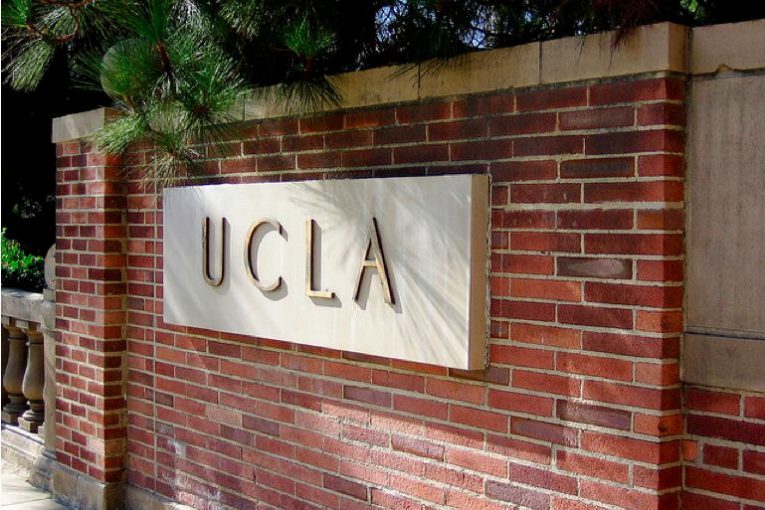

By Michael Apfel and Amy Berberyan
PHILADELPHIA, PA – Professor Joanna Schwartz from the UCLA School of Law appeared on the Quattrone Center for the Fair Administration of Justice interview to discuss her book Shielded, which covers issues surrounding police misconduct and accountability in the legal system.
Schwartz, who teaches Civil Procedure along with other courses that specialize in police accountability and public law, said, “This book is a product of a decade-and-a-half of research and then advocacy before that time about civil rights litigation, and really about how civil rights litigation functions on the ground.”
The Prof. added, “There is a lot of rhetoric within Supreme Court opinions, public commentary, scholarly work about how civil rights litigation works, but my goal has been to understand and test whether those assertions actually pan out and bear relationship to reality.”
Inspiration for the book came after the murder of George Floyd on May 25, 2020, after journalists and other professionals reached out to Schwartz for her expert opinion on qualified immunity and the criminal justice system as a whole.
“I wrote this book, in the months after George Floyd was murdered, because I was getting a lot of calls from legislators and journalists trying to understand how this system works and qualified immunity’s role, translating my work to a broader audience and to try and understand how these different doctrines work together.”
According to Schwartz, the ability for most people to receive justice after they experience wrongdoing from law enforcement is severely limited by the unnecessarily broad protections given to law enforcement and the intentionally obtuse nature of the courts.
“What I aimed for with Shielded…(is to explain) that the Supreme Court and local governments across the country have created so many barriers to relief for people seeking justice through civil rights lawsuits that the police are, as I say in the title of the book, untouchable.
“It may be a bit of hyperbole, they are not completely untouchable, and there are incidents that you likely have heard of in the news of people getting multi million dollar settlements, particularly after high profile events.
“What my book focuses on, though, are cases that you haven’t heard of before, cases that haven’t turned into viral videos and national conversations, and it is those cases where there is not a spotlight on the event, where there is not political salience to the event, where the barriers that I talk about in this book really come to light and have their most dramatic impact.”
After some events, like the police brutality against Tyre Nichols earlier this year, reach the public’s attention, Schwartz explains that people want answers and justice but may not understand the limited options available to the majority of victims in these types of cases.
“In our current system we only have three paths. Criminal prosecutions of officers are one option. They are exceedingly rare. Officers are prosecuted in two percent or less of fatal shootings, convicted in a third of those cases, and extremely unlikely to be charged for nonfatal force or other kinds of police misconduct.
“Another path is through police departments’ internal affairs investigations and discipline termination. These processes are hampered for a variety of other reasons. Law enforcement officer’s bills of rights often provide tremendous protections for officers, allowing them to appeal and arbitrate any findings of discipline, and the findings of discipline themselves are rare. When the department of justice has investigated police departments’ internal affairs investigations processes they found them to be very flawed, with investigators not taking the basic steps that officers would take to solve crimes.
“So, if criminal prosecutions are unlikely, internal affairs discipline is unlikely, the third path we have towards some manner of justice is by filing a civil suit, seeking damages against the officer or against the city that employs them, or seeking forward looking relief, injunctive relief, that can address some of the policies and practices in a department and the more systemic problems that lead to incidents of misconduct.”
Schwartz said the limited number of lawyers capable of taking on civil rights cases also negatively contributes to the broader issue of a lack of police accountability. Civil rights cases bring a financial risk that many smaller lawyers cannot take.
“These shields make it difficult for people to find a lawyer. That may be a surprise if you listen to the media or the general consensus about lawyers in our society. You would think there would be lawyers filling the courthouses happy to take the cases alleging even the smallest violations, but the way that lawyers are paid to take civil rights cases is that they recover something if their client wins and nothing if they lose,” Schwartz said.
She added, “It’s very difficult to bring these cases, and it means the risks of bringing these cases often outweigh the benefits. Outside of large cities where there are small but vibrant civil rights practices, the ability to find an experienced civil rights lawyer can be very difficult.”
In the event a settlement or judgment is finally reached, Schwartz argues the systems in place make it exceedingly rare that the burden falls on the offender to provide restitution to the victim.
“Even if you get past all of the barriers and end up recovering a settlement or judgment, the ways which local governments budget for and pay settlements and judgements in police misconduct cases, meaning they have limited financial impact on officers or departments, and many departments don’t learn from these suits, don’t gather and learn from the information in these lawsuits, making it difficult to learn much of anything from them. This is the world of civil rights litigation and bringing these cases,” the prof. said.
Schwartz argues against qualified immunity for officers, suggesting the protections laid out in the Constitution are sufficient to protect the rights of the police as well as prevent frivolous lawsuits.
“The system does not work as it should, and these limitations are justified by the Supreme Court and the state and local governments, by myths about the dangers of making it too easy to sue. It sounds as if we got rid of qualified, courthouses would overflow with frivolous lawsuits, officers would be bankrupted for split second mistakes made in good faith while on the job.
“No one would want to be a police officer under those circumstances, and our society would devolve into chaos. When you read the Supreme Court, they talk about the importance of qualified immunity to society as a whole in part because of this myth about the dangers of making it too easy to sue. Those myths have been what I have spent my career researching and finding that many of these claims do not bear scrutiny.”
Not only is it legally impractical to provide qualified immunity to police officers, but Schwartz explains that her research has revealed how preexisting labor protections have already shown to be effective in addressing these concerns.
“The idea that officers are going to be bankrupted without qualified immunity overlooks the facts that state, state and local governments across the country have indemnification obligations as a matter of contract, as a matter of policy they are obligated to provide legal counsel and pay settlements and judgments on behalf of their officers,” noted the professor.
She added, “Even when there is discretion not to indemnify, local governments often do. I looked at 81 jurisdictions across the country over a six-year period and found that 99.98 percent of the dollars came from insurers or taxpayers. 0.02 percent of the dollars came from officers.
“In two departments, the payouts in those departments by those officers was an average of $4,000, not the makings of a bankruptcy petition. The other part of that argument, that officers would be bankrupted for split second mistakes, ignores the protections of the Fourth Amendment, which already protects against reasonable mistakes.”
Schwartz cited a case in November of 2020 involving horrendous prison conditions in which, according to Schwartz, the Supreme Court stated that “any officer should know that this person’s constitutional rights had been violated.”
Though Schwartz noted she wanted to be optimistic with this ruling, she cited issues with one justice, Clarence Thomas.
“I don’t have much faith in this Supreme Court making any move on qualified immunity now,” she said. This was because qualified immunity had become a “hot button issue” in modern politics.
She noted interesting things continue to happen on the state level: this included a Colorado bill that made it so that officers acting in bad faith will have to pay up to $25,000. This financial burden could also include officers “carrying liability insurance.”
Schwartz added that unions had prevented Minneapolis from instituting a law in which the city would pay for an officer’s liability insurance. If their premiums went up due to their being determined to be liability risks, the officers would have to pay the difference.
Schwartz said many officers she deemed to be good were also opposed to qualified immunity, because new officers getting the green light to do whatever they want further erodes the trust between police officers and the public.
She added, “In a world in which qualified immunity was eliminated, there would be more trust between communities and police.”
But, judging by the many state legislative hearings she has been involved in, Schwartz said that most representatives opposing the bills that could help do this have been “county attorneys and police union officials.”
For example, the Colorado bill was opposed by police union officials who claimed they wanted to be treated like everyone else. Schwartz commented on how this was ironic, since the purpose of the bill was “so that they were treated like everyone else, and for qualified immunity to be eliminated for all public government officials.”
“It’s my view that we as a society give police and other government officials their authority—we give them police badges and guns—and when they violate peoples’ rights, we as a society should bear the costs of those harms,” Schwartz said. The alternative, she noted, would be the person bearing this cost themself as the cost does not go away.




